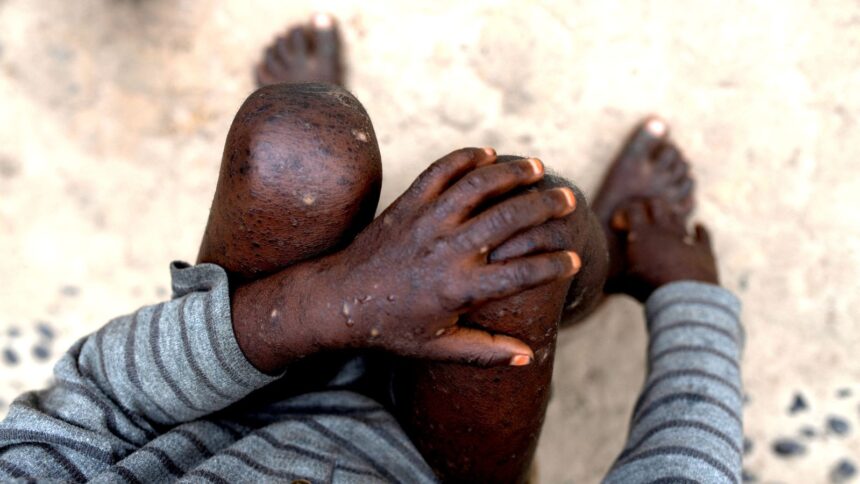The most dangerous strain to date is thought to be clade 1b, which was first discovered in the Democratic Republic of the Congo (DRC) and has since been verified in Sweden and Pakistan.
This Monday, the World Health Organization (WHO) labeled the outbreak a global health emergency since it has spread to 13 African countries, resulting in the reporting of over 15,600 cases and 537 deaths.
Expert in infectious diseases Professor Paul Hunter told the News that it’s “very likely” that someone in the UK has already contracted the new strain of the virus.
He did, however, add that it would probably not be proven for a few weeks until patients with symptoms see a physician and have samples examined.
“When someone gets an infection it typically takes several days before they develop the classic appearance that would make people think ‘oh, this is mpox’,” Professor Hunter explained.
“Then it can take longer before the samples are taken and sent to the lab, it’s identified as mpox and sent for sequencing so we know which clade of mpox it is.”
Blisters on the face and other parts of the body are the primary way that the disease spreads, usually during intercourse.







